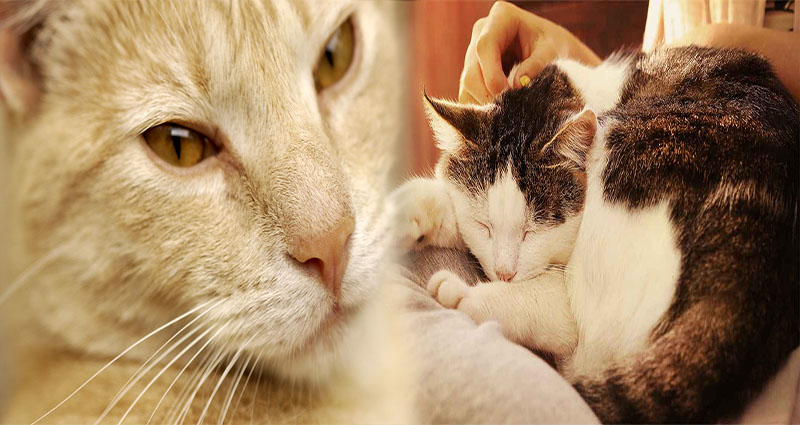Adopting a senior cat can be an incredibly rewarding experience. These older feline companions bring a sense of wisdom, calmness, and companionship to our lives. However, providing a loving forever home for a senior cat comes with some unique considerations. In this article, we will provide you with essential tips to ensure a smooth transition and a happy life for your newly adopted senior feline friend.
1. Prepare Your Home
Before bringing your new senior cat home, make sure to prepare a safe and comfortable space for them. Senior cats may have specific needs such as easier access to food and water bowls, litter boxes with lower sides for easy entry, and cozy and quiet resting areas. Create a warm and inviting environment by providing soft bedding, scratching posts, and toys to keep them entertained and mentally stimulated.
2. Slow and Gentle Introduction
Senior cats may take longer to adjust to their new surroundings, so be patient with the introduction process. Give them time to explore their new environment at their own pace. Gradually introduce them to different areas of the house, one room at a time, allowing them to feel secure and establish their territory. Provide hiding spots or elevated perches where they can retreat when feeling overwhelmed.
3. Establish a Routine
Senior cats thrive on routine, so it’s important to establish a consistent daily schedule. Feed them at regular times, and provide fresh water continuously. Set up a comfortable sleeping area where they can have quiet, uninterrupted rest. Keep their litter box clean and easily accessible. By sticking to a routine, you will help your senior cat feel secure and eliminate any unnecessary stress.
4. Health and Wellness
Regular veterinary care is crucial for senior cats. Schedule a visit with your veterinarian to assess their overall health and discuss any specific needs or concerns. Keep up with vaccinations, dental care, and regular wellness check-ups. Provide a balanced diet that meets their nutritional requirements and consider age-appropriate supplements to support their joint health and overall well-being.
5. Exercise and Mental Stimulation
Senior cats may have reduced energy levels, but they still benefit from gentle exercise and mental stimulation. Engage them in interactive play sessions using toys that encourage gentle movement. Provide scratching posts and puzzle toys to keep their minds active and prevent boredom. Regular playtime will help maintain their physical health and keep them mentally sharp.
6. Patience and Love
Above all, provide your senior cat with patience, love, and understanding. They may have had previous experiences or traumas that influence their behavior, so be patient as they open up to you. Shower them with affection, spend quality time cuddling and grooming them, and provide a nurturing environment where they feel loved and cared for.
7. Monitor Their Well-being
Keep a close eye on your senior cat’s health and behavior. Look out for any changes in appetite, litter box habits, mobility, or overall demeanor. Senior cats may have specific health issues such as arthritis, dental problems, or kidney disease. Early detection and intervention can help manage these conditions effectively, so don’t hesitate to consult your veterinarian if you have any concerns.
Providing a loving forever home for a senior cat is a beautiful act of kindness. By preparing your home, introducing them slowly, establishing a routine, prioritizing their health and wellness, providing exercise and mental stimulation, and showering them with patience and love, you can ensure a smooth and happy transition. Remember, senior cats have an endless capacity to love and bring joy into your life, so embrace this wonderful journey and cherish every moment with your newly adopted feline companion.












